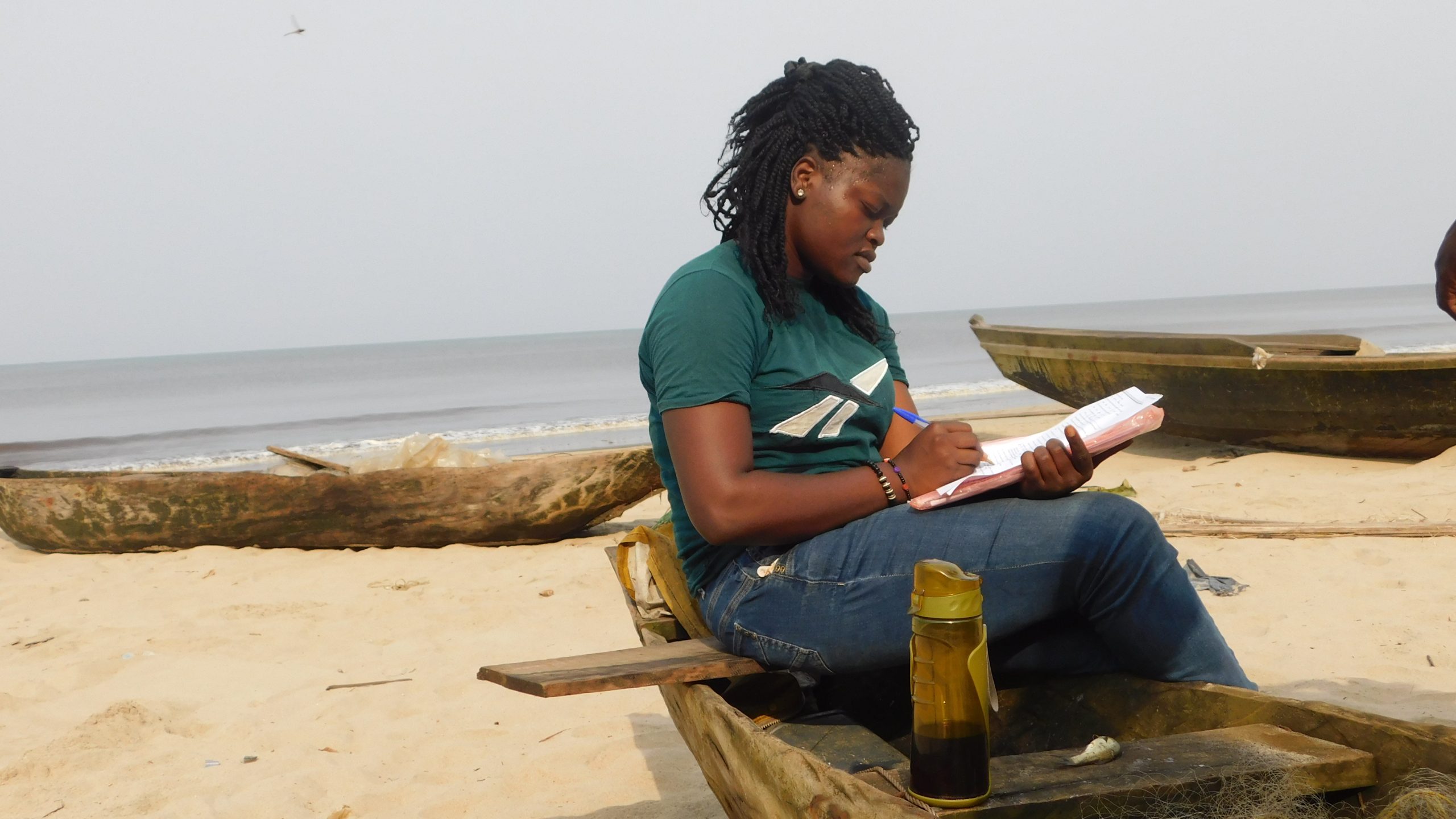Five of the world’s seven sea turtle species are found in central Africa. And over half of those species are considered threatened or endangered. In central Africa, sea turtles serve as significant sources of food and income for people living near turtle habitats. For her 2016 CARN research, Ursla Bénédite Koumbo Tagaoum assessed the status of sea turtles along central Africa’s coast. And she did it by working with people who are often a major conservation threat to sea turtles: fisherman.
Tagaoum used fisherman’s knowledge to assess threats to sea turtles, while working to educate fishing communities about sea turtle’s ecological importance, and how fisherman can be partners in conservation efforts. Her research was conducted in the Campo Ma’an National Park, tucked into the far southwest region of Cameroon, bordering Equatorial Guinea and the Atlantic Ocean. She conducted over 100 interviews with fisherman in eight communities surrounding the park, and visited fish markets in those communities bimonthly to record turtle bycatches (accidental catches of sea turtles in fishing nets).
Tagagoum also created her own fisherman reporting network, training six people to report daily bycatch numbers. She found that bycatches are, by far, the main cause of sea turtle death, outstripping things like boat collisions or poisoning, and that most fisherman use sea turtles as main source of protein in their diet. She also found that while most fisherman are aware of national laws protecting sea turtles, and their eggs, they ignore the rules.
Tagagoum then collaborated with staff from Cameroon’s Ministry of Forestry and Wildlife, and the local office of the World Wildlife Federation, on her sensitization campaigns. She taught community members – about 200 in all – how to identify different sea turtle species, how fishing practices can hurt sea turtles and their habitats, and even how to safely release sea turtles caught in fishing nets.
Since receiving her CARN award, Tagagoum has received her masters degree in animal biology from the University of Dschang. She is working with the Cameroon Herpetology – Conservation Biology Foundation, which works to research and conserve the country’s amphibians and reptiles. She is hoping to pursue a PhD in conservation. “My career goals is to advance the research in Herpetology in my country, since this field of study is still young, and then become a shero in this field of study.”
“This grant allowed me to meet and exchange with international experts on sea turtles, which is very important for my career development,” Tagagoum says. “I thank and I will thank CARN again and again for this grant because it opened a way to work in conservation.”
